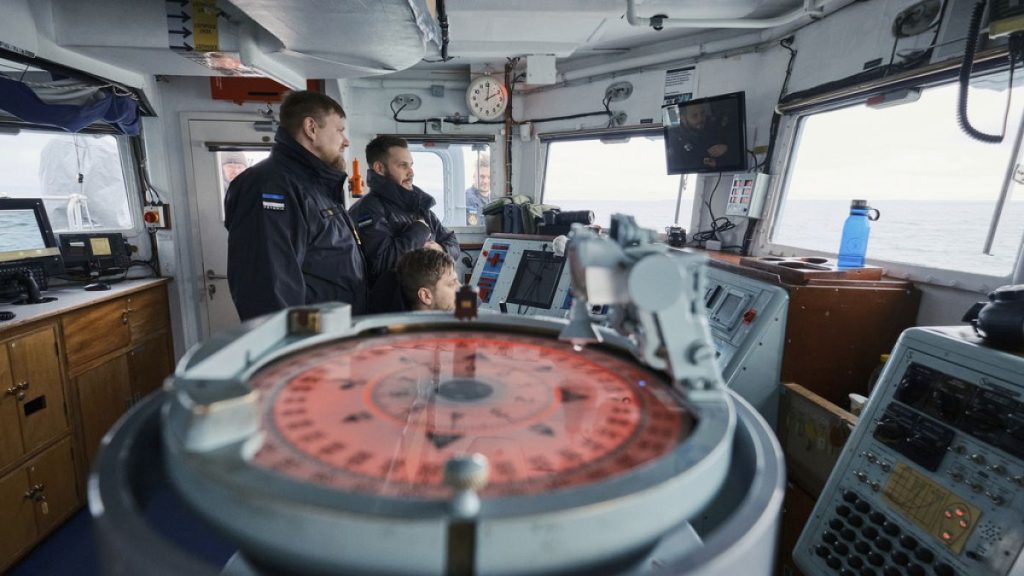The Baltic Sea, a crucial maritime crossroads connecting Northern, Baltic, and Central European nations, has witnessed a concerning surge in incidents of undersea cable damage. This escalation of incidents, particularly following Russia’s full-scale invasion of Ukraine in 2022, has raised suspicions of deliberate sabotage, potentially orchestrated by Moscow. While the Kremlin denies any involvement, the timing and nature of these incidents have heightened anxieties among regional governments about the security and resilience of their critical infrastructure. The Baltic Sea is a relatively shallow body of water, making the network of cables and pipelines crisscrossing its floor particularly vulnerable. These vital connections facilitate trade, ensure energy security, and in some instances, provide an alternative to reliance on Russian energy resources. The vulnerability of this infrastructure has underscored the need for increased vigilance and protective measures.
The most recent incident involved Estlink 2, a high-voltage direct current power cable that connects Estonia and Finland. This crucial link possesses the capacity to supply approximately half of Estonia’s electricity requirements during the winter months. While the December 25th damage to Estlink 2 did not result in a complete service disruption, it nevertheless caused a spike in energy prices in Estonia, as well as in neighboring Baltic states Lithuania and Latvia. The disruption served as a stark reminder of the region’s energy vulnerability and the potential economic consequences of further attacks on critical infrastructure. The incident has prompted increased patrols by Estonian naval forces, along with other NATO allies, as a demonstration of resolve and a deterrent to further acts of sabotage.
The Estonian Navy, actively participating in the enhanced patrols, has adopted a proactive approach to monitoring maritime traffic in the area. Aboard vessels like the EML Sakala, crew members meticulously observe passing ships, scrutinizing their movements for any suspicious behavior, such as sudden course changes or unexplained slowing. This heightened surveillance, coupled with the logging of vessel names and checks for missing anchors or trailing cables, aims to deter potential saboteurs and enhance situational awareness within the Baltic Sea. The Estonian Navy’s increased presence underlines the nation’s commitment to safeguarding its vital maritime infrastructure.
The December incident involving Estlink 2 followed earlier damage to two other undersea data cables in the same region. These repeated instances of cable disruption, occurring against the backdrop of the ongoing conflict in Ukraine and escalating tensions with Russia, have amplified concerns about the vulnerability of undersea infrastructure and the potential for further acts of sabotage. The suspicion directed towards Russia stems from a pattern of alleged sabotage attributed to Moscow since its invasion of Ukraine. While concrete evidence linking Russia to these specific incidents remains elusive, the climate of distrust and geopolitical tension fuels speculation and heightens regional security concerns.
The damage to Estlink 2, which lies at a maximum depth of 90 meters and traverses a heavily trafficked shipping lane, poses significant logistical challenges for repair efforts. Finnish grid operators estimate that the repairs could cost tens of millions of euros and might not be completed until late summer. This extended timeline for restoration highlights the complexity of undertaking repair work in a challenging underwater environment. Moreover, the potential for protracted disruptions to critical infrastructure underscores the need for robust contingency plans and alternative energy sources to mitigate the impact of future incidents.
Since the beginning of 2023, approximately ten undersea cables in the Baltic Sea have been damaged, affecting countries such as Estonia, Finland, Sweden, Germany, and Lithuania. This alarming trend underscores the growing threat to critical infrastructure in the region and the potential for significant economic and social disruption. The Baltic Sea, largely encircled by NATO member states, including recent additions Finland and Sweden, remains a strategically important area. The shallowness of the sea, while beneficial for certain maritime activities, ironically increases the vulnerability of undersea infrastructure to both accidental damage and deliberate sabotage. This precarious situation necessitates enhanced security measures and international cooperation to protect these crucial connections. The potential for further disruptions raises concerns in Estonia, where authorities might be forced to rely heavily on domestically produced energy at a higher cost to consumers if the remaining power cables suffer damage. This scenario highlights the importance of diversifying energy sources and strengthening the resilience of the region’s energy infrastructure.














